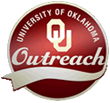Element 1: The Developing Early Learner
Purpose: Understanding the early learner's overall development lays the foundation for effective early language and literacy development. As early learners develop their language and literacy skills, cognitive abilities, emotional and social maturity, and physical capabilities, it is important to be aware these domains are all interconnected. This interconnectedness is a critical piece in the support of literacy and language development. Possessing such awareness may be helpful to teachers of early learners to enhance their teaching methods. Element 1 provides resources about the development of early learners and the role of family, caregivers, and first teachers with language and literacy development from birth through age eight.
Activity 1: Understand the Continuum of Child Development of the Early Learner
Activity 2: Understand the Role of Literacy in the Family
Element 2: Developing an Early Language and Literacy Learning Profile
Purpose: Understanding the status of early language and literacy in the early childhood care and educational environment at the community level is necessary to improve language and literacy development among early learners. Gathering information about the community helps members, including families, schools, and early childhood educators and caregivers, to understand the local landscape of early language and literacy.
Gathering information about the community is an important part of understanding the early childhood educational environment.
Activity 1: Build a Community Literacy Profile
Activity 2: Build an Early Child Care and School Literacy Profile
Element 3: The Foundation for Learning to Read and Write
Purpose: The National Institute of Child Health and Human Development (NICHD) defines early literacy as "what children know about reading and writing before they actually learn to read and write." This Element explores the foundation for learning to read and write, focusing on language development and emergent literacy skills.
Activity 1: Understand Language Development
Activity 2: Understand Emergent Literacy Milestones, Terminology, and Stages
Activity 3: Intentional Instruction to Enhance Language and Emergent Literacy Development
Element 5: Standards for Early Childhood Teaching and Learning
Purpose: Standards for early learning include those for educators of early learners, state-level early learning guidelines or standards, and applicable national standards. Educators of early learners need to be aware of the standards impacting licensure and instruction. This Element provides information about applicable standards impacting educators of early learners and their students.
Activity 1: Be Aware of Standards for Early Childhood Educators
Activity 2: Be Aware of Early Childhood Learning Standards
Activity 3: Align Curriculum and Instruction to Standards
Element 6: Building Support for Early Learning Programs
Purpose: Building support for language and literacy development of early learners involves the participation of parents and caregivers, the business community, local community groups, and educational and state governmental leaders. To promote and enhance early learner language and development, educators need to be aware of the role each group plays and how to communicate with them. This Element provides resources to help educators of early learners gain such awareness.
Activity 1: Develop Parent, Caregivers, and Community Support
Activity 2: Interact with Advocates and Policy Makers
Element 7: Using Data to Improve Early Learning Outcomes
Purpose: Formative and summative assessments and observations provide the basis for planning instruction, making adjustments, and refining future assessments. Assessment results show educators of early learners where changes need to be made in instructional approaches for groups of students or individual students. The assessment outcomes also show parents of early learners how their child is progressing. This Element explores how to use data to improve learning outcomes for early learners.
Activity 1: Use Multidimensional Learning Data
Activity 2: Use Data to Improve Instruction and Increase Learning
Activity 3: Inform and Collect Feedback from Constituencies
